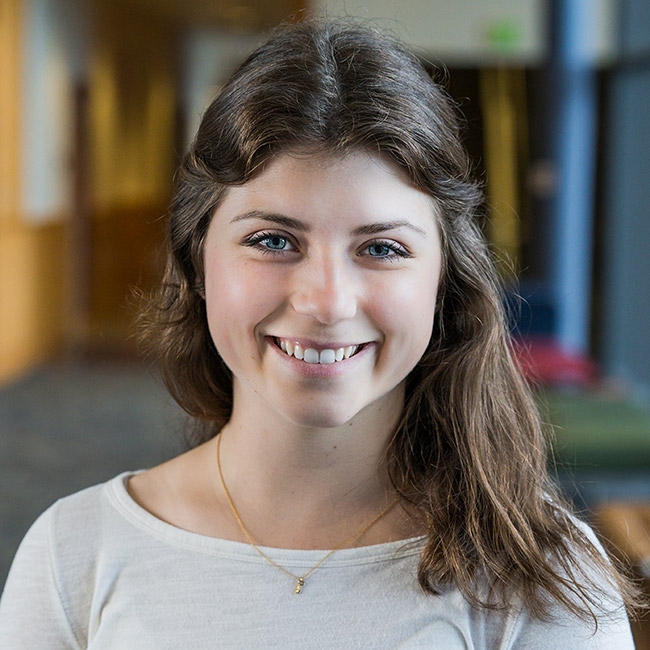
Applying Wooster experiences to respond to the coronavirus threat

The coronavirus crisis has given mathematics and philosophy alumna Emily Howerton ’17 a chance to “address a complicated and nuanced biological problem and extend [her] skills to a novel situation, all in real time,” she said. “Coronavirus is a threat to all of us in so many ways; having the chance to make even the smallest impact is why I do what I do. I find the work personally rewarding and scientifically exciting.”
Pursuing her Ph.D. in biology at Penn State University, Howerton is working with her advisor and a team of collaborators to build models that aid decision makers as they consider interventions to address the coronavirus pandemic like social distancing, testing, and isolation. Uncertainties of the novel virus such as how the disease is transmitted and how interventions may affect spread “make it difficult to project disease dynamics and inform decisions about things like public health interventions, resource allocation, and more,” she said. In explaining their work, Howerton uses an analogy of considering a higher-paying job in another city: “Some unknowns about the city are more important to you than others. The difference in cost of living may make or break your decision, whereas the quality of the music scene may be less important. Our modeling work aims to identify which coronavirus uncertainties are ‘cost of living’ level importance and which are ‘music scene’ level.” With the support of the Penn State Huck Institutes of the Life Sciences Coronavirus Research Seed Fund, the models Howerton and her colleagues have developed “can run many scenarios that encapsulate different uncertainties. With these results, we can quantify which unknowns have the biggest effect on epidemiological projections and key public health outcomes,” she said.
Making sure her research is understood by decision-makers, scientists, and the public requires “key skills I gained through my Wooster experience,” she said. “I learned to think critically about complex problems from many perspectives.” Through internships and through AMRE, the College’s Applied Methods and Research Experience program supporting local businesses and organizations, “I saw first-hand how influential modeling can be,” Howerton explained, “We were working on real-world problems that were complicated and not easy to solve.” She built technical skills she continues to use today. “My work on coronavirus has both biological and social implications. Being mindful of each of these parts, and how they may work together or differ, allows me to contribute to conversations about designing interventions that are equitable, feasible, and effective.” Further, Howerton credits her Independent Study experience with teaching her “to communicate ideas clearly through written and in oral presentation. The coronavirus is a complex problem that requires complex solutions, so it’s crucial to make sure my research is understandable.”
Posted in Alumni on May 12, 2020.
Related Posts
Related Areas of Study
Public Health
Explore the many options and paths for those who want to be part of the world of health care
PathwayPhilosophy
Delve into ethical and moral debates while critically analyzing the issues facing humanity
Major MinorMathematics
Numbers + patterns + structures multiplied by a zest for analysis and inquiry
Major Minor

